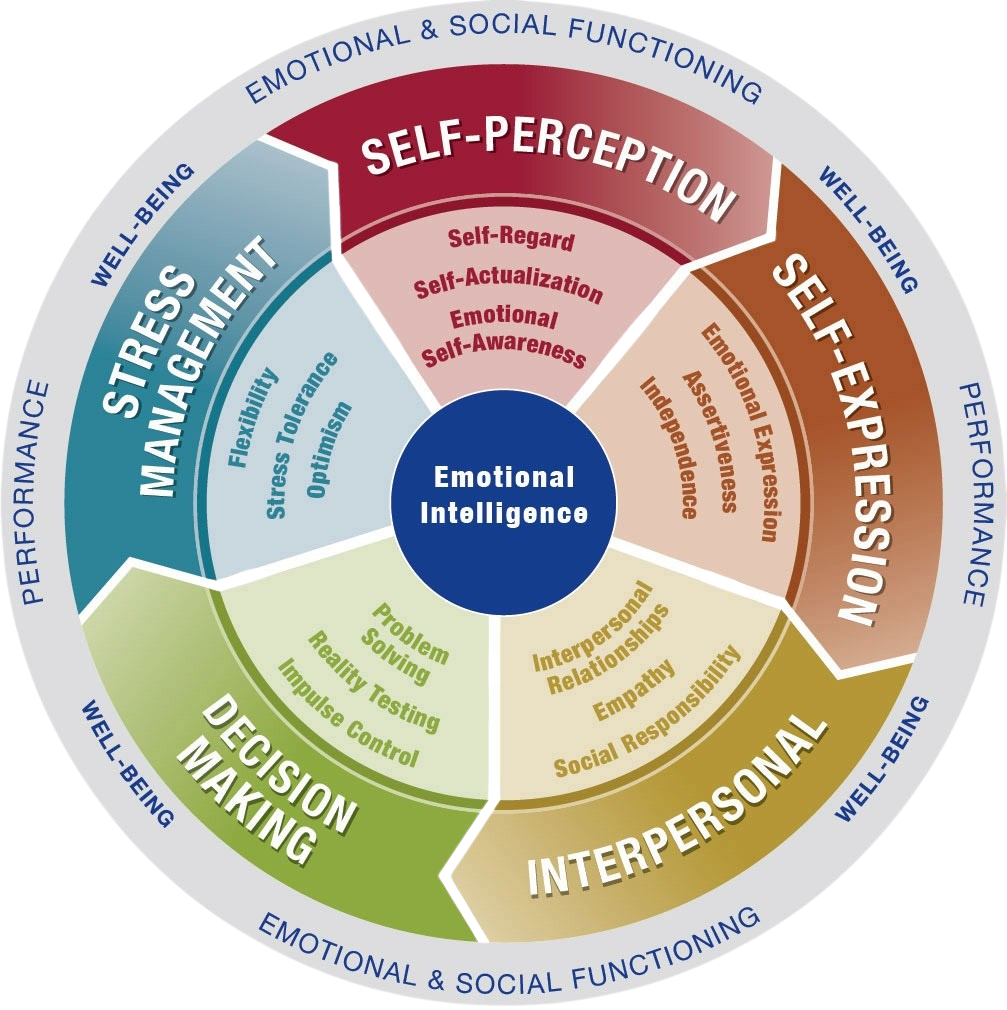Emotional Intelligence
Two research trends in psychology in the 1980s came together, leading to the emergence of the term Emotional Intelligence:
- One of them focused on the interplay between emotions and thoughts, and how our thinking processes were influenced by this interplay.
- The other was to extend the definition of intelligence from the established view of it as a set of analytical abilities.
One new perception of intelligence was put forward by Howard Gardner – the concept of Multiple Intelligences. This concept encompassed eight different types of intelligences, including intrapersonal and interpersonal intelligence. These two types of intelligences served as a prototype for defining Emotional Intelligence as it's understood today (see Salovey, Brackett, Mayer 2004).

The term Emotional Intelligence was coined by John D. Mayer and Peter Salovey. They defined Emotional Intelligence as a set of abilities pertaining to:
- Accurately perceiving and expressing emotions
- Using emotions to facilitate cognitive activities
- Understanding emotions
- Managing emotions for both emotional and intellectual growth
According to the Mayer-Salovey model Emotionale Intelligence as an ability, a type of intelligence. Similar to classical intelligence, people differ from each other in their emotional intelligence: Some people are better able to recognize, understand, express, use and control their emotions.
Link to the scientific article
John D. Mayer, David R. Caruso, Peter Salovey „The Ability Model of Emotional Intelligence: Principles and Updates“

Another recognized model of Emotional Intelligence is the EQ-i, in which EQ stands for the emotional intelligence quotient and "i" for inventory. The EQ-i was developed by Reuven Bar-On in the 1980st. According to the EQ-i 2.0 model Emotional Intelligence is defined as a set of emotional and social skills that influence the way we:
- perceive and express ourselves
- develop and maintain social relationships
- cope with challenges, and
- use emotional information in an effective and meaningful way
The EQ-i model encompasses 15 competencies that comprise the Emotionaler Intelligence quotient:
- Self-Regard
- Self-Actualization
- Emotional Self-Awareness
- Emotional Expression
- Assertiveness
- Independence
- Interpersonal Relationships
- Empathy
- Social Responsibility
- Problem Solving
- Reality Testing
- Impulse Control
- Flexibility
- Stress Tolerance
- Optimism
Link to the scientific article
Link to the article by Reuven Bar-On
"The Bar-On Model of Emotional-Social Intelligence"

